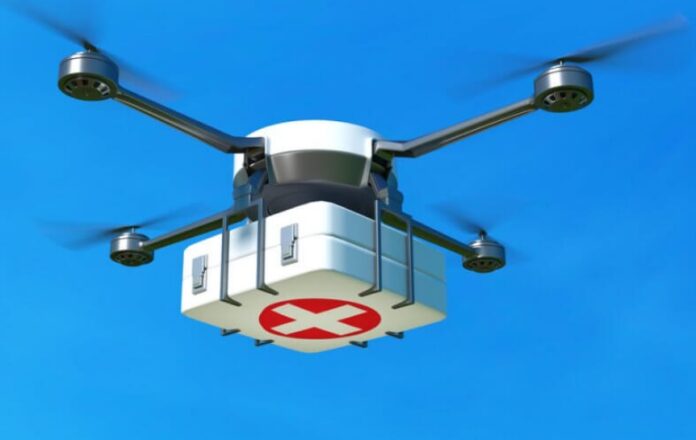From life-saving blood to vaccines and tool kits, drones are transforming the healthcare system in Ghana. Health workers now receive essentials faster and more reliably, providing access for remote areas where poor roads were a major limitation for urgent deliveries. This shows how drones are redefining healthcare logistics.
Leading this transformation are a number of local and international companies working side by side with the Ghanaian government to ensure nationwide coverage. One of the major players is Zipline, a US-based firm that pioneered large-scale medical drone deliveries in Ghana starting in 2019. Through a network of distribution centres, Zipline’s drones deliver directly to health facilities across 13 of Ghana’s 16 regions. What once took hours by road now takes as little as 20 minutes by air.
Other companies are beginning to join the space, too. Global firms like Wingcopter and Avy are introducing advanced delivery drones with longer ranges and heavier payloads. Locally, companies such as SKT Aeroshutter, Rudan Engineering, and Rocketmine are exploring ways to apply drone technology to logistics and healthcare delivery.
These drone services are integrated into Ghana’s national health supply chain through public-private partnerships. The approach allows government hospitals and clinics to place orders for critical supplies as needed, reducing stockouts and improving patient care. Drones also proved invaluable during the COVID-19 pandemic, delivering test samples and vaccines quickly to where they were needed most.
While most drone flights in Ghana currently focus on medical deliveries, companies are exploring other uses too, such as transporting consumer goods, lab equipment, and animal health products. This signals a growing role for drones beyond the health sector, as part of the country’s wider logistics ecosystem.
Ghana’s experience offers a blueprint for African countries looking to strengthen healthcare delivery. By combining technology, partnerships, and local innovation, drones are not just delivering supplies; they’re delivering better healthcare outcomes.








